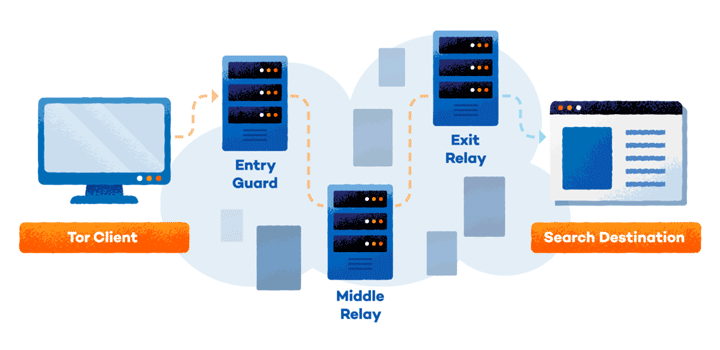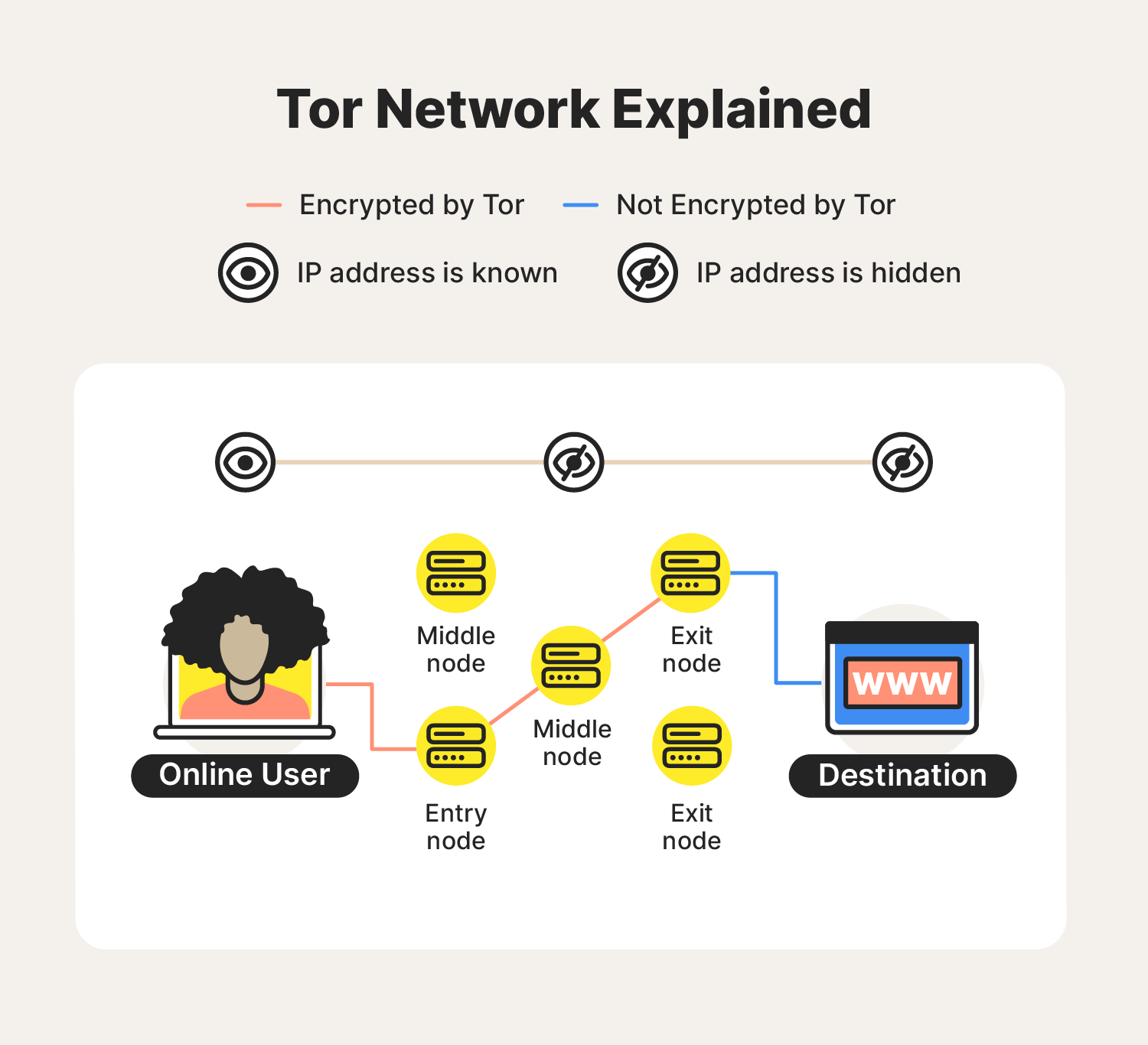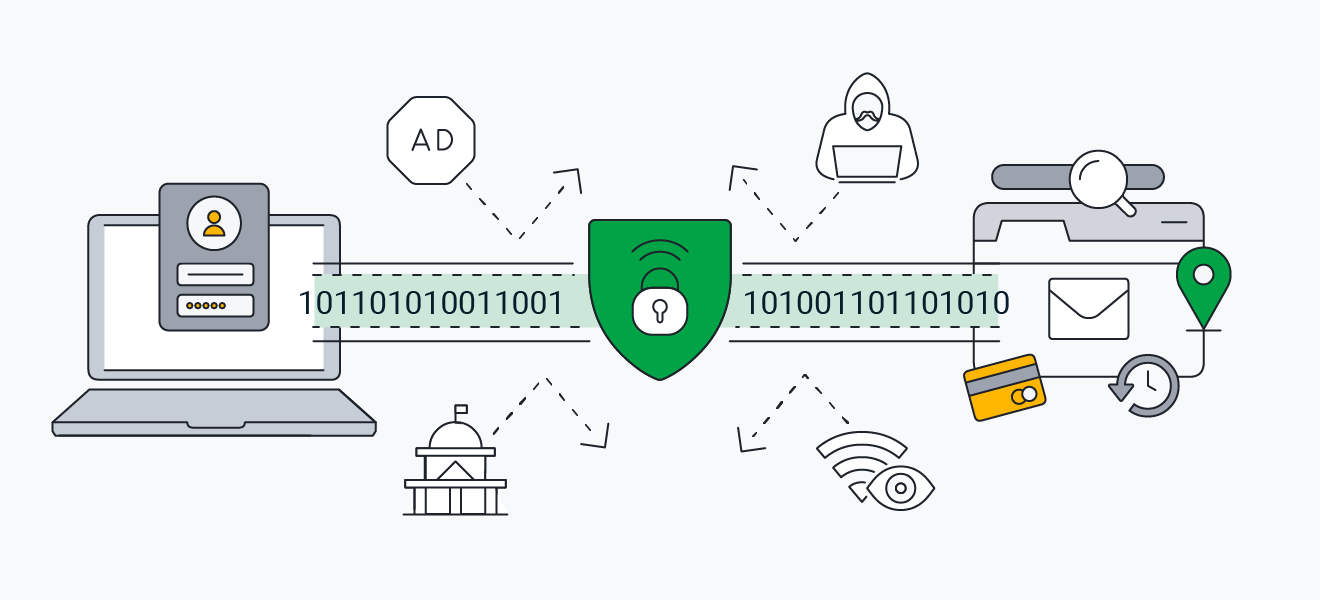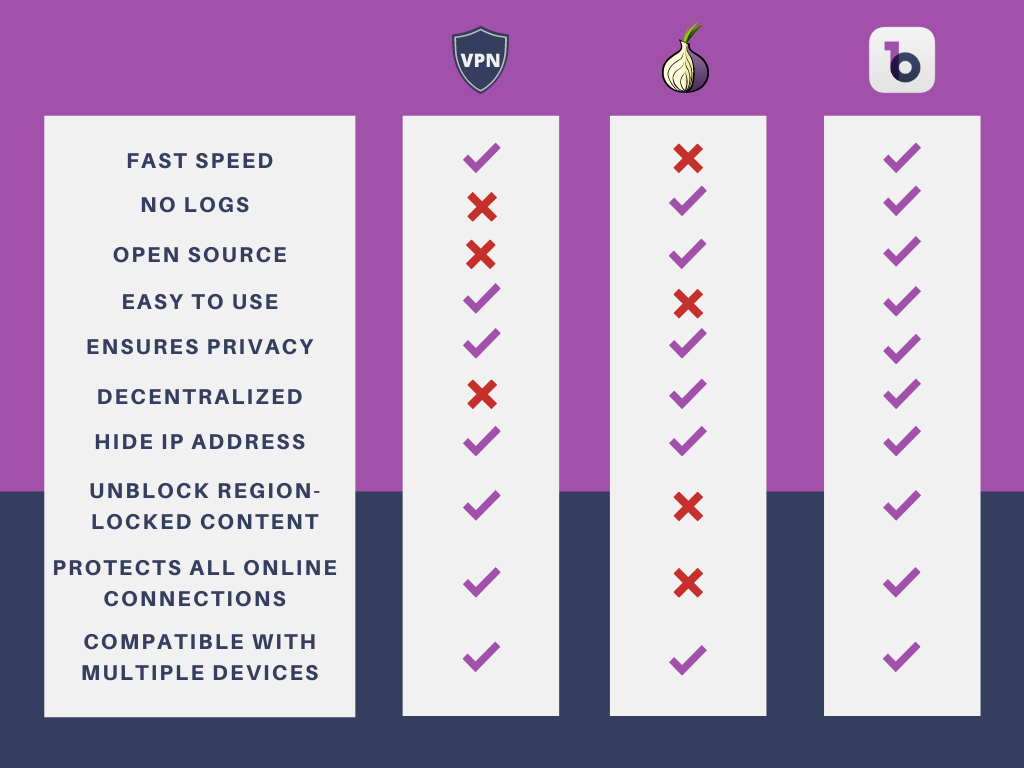Featured
Table of Contents
Tor And Vpn: How Well Do They Mix?
One of the key differences between Tor and a Virtual Private Network (VPN) is who manages the tool., which means that they are centralized. If you use a VPN, you need to trust that the VPN supplier will honor its dedication to keep your data safe and secure and personal. On the other hand,.

Tor, on the other hand, is slower and less easy to use. It's likewise a widely known fact that Tor has actually been used for not-so-ethical activities.
Tor is not recommended for streaming as the connection is too slow. Yes, many VPNs are quick enough for streaming.
Tor Vs. Vpn: Which Should You Choose?
A lot of VPNs are simple to use and instinctive. Slow Fast speeds, but this will depend upon the VPN service provider, the server you choose and your range to it, and other aspects. When you send information through this tunnel, your IP address is replaced with the server's IP. This makes it look like though you are accessing the web from the area of the remote server instead of your actual location.
Only those that have the secret to open this safe (which is you and the data's destination, like a site) can see your data. Thanks to contemporary file encryption algorithms (or locks), it's near impossible to get into your data. For instance, Express, VPN utilizes an encryption algorithm called AES 256-bit, which is the exact same algorithm utilized by the federal government and military.
You will experience speed loss because your information requires to take a trip farther to get to its location and since the encryption procedure requires time. That said, this distinction is hardly visible with a top quality VPN, and it won't impact your speed as much as Tor does, as Tor isn't enhanced for speed as some VPNs are.
Can I Use A Vpn With Tor?
This is why you ought to search for a VPN which provides an automated kill switch, as it will disconnect you from the web in case your VPN software fails. Each node secures your data prior to it is forwarded to the next server. When your traffic is received by the last server (called the exit node), it's decrypted and sent to the site you're visiting.
The exceptions to this are the entry node, which can see your real IP, and the exit node, which unlocks your encrypted data. Spies can see your traffic once it leaves the network, but not where that information came from., including hackers and spies. Bad nodes normally harvest information such as login information to websites, individual details, online chat messages, and e-mails.
To secure yourself from bad relays on Tor, I recommend the following: over your connection. Never log into sites unless they utilize HTTPS. to secure your delicate details and login information we'll talk about this in more detail below. For more details on this web browser and pointers on how to remain safe while using it, have an appearance at our Tor beginner's guide.
Is It Safe To Use Vpn In Combination With Tor Browser?
Numerous legitimate websites have "mirror sites" with a. onion subdomain for these purposes. So that whistleblowers can send files and info without jeopardizing their identity. Facebook has a. onion mirror site so that people in heavily-censored regions can utilize it to interact. The Tor browser or Android app, or Tails, the Tor operating system, or Onion Web Browser, the Tor i, OS app.

Because the internet browser hides your identity, Tor is frequently used to access global content in countries with rigorous online censorship. The Tor network is really sluggish, that makes it less than ideal for streaming, torrenting, video gaming, or any other bandwidth-heavy activities. The exit nodes of Tor can be controlled by skilled individuals to spy on other users, so it's not as safe as a premium VPN would be.
, as well as avoid your ISP and security bodies from detecting the usage of Tor. This method needs more technical knowledge because you'll require to configure your VPN client to work with Tor.
What Are "Onion Over Vpn" & "Tor ...

Although Tor's entry node can still see your genuine IP, your VPN will only see the exit node's address. Your ISP won't be able to see that you're connected to a VPN, but it can see that you're utilizing Tor. Because you can select which remote server your VPN uses,, too.
, which increases your privacy. Your traffic is not secured when it leaves the Tor network, so. So, you'll still require to be cautious about sending out sensitive information over your connection. You require to hide your usage of Tor from your ISP and monitoring bodies. You need to hide your traffic from your VPN supplier.

You wish to sites. Another service is to integrate both and use Tor over VPN. Tor safeguards your personal privacy by routing traffic through several encryption layers and relays, however your information is susceptible on the exit node. VPNs encrypt your internet traffic end-to-end and reroute it through remote servers of your choice while changing your IP address.
What's The Difference Between Vpn And Tor?
When you use Tor, your internet traffic is encrypted and routed through several nodes, making it harder for your ISP to see what you're doing online. This can assist prevent ISP throttling based upon your online activities, such as streaming videos or downloading large files. However,, which suggests that some ISPs might still have the ability to discover and throttle Tor traffic.
We advise Express, VPN the # 1 VPN out of over 350 companies we have actually tested. It has military-grade file encryption and privacy functions that will ensure your digital security, plus it's currently providing 49% off.
Latest Posts
Best Vpns Of August 2023
The Best Vpn For Business In 2023: Top 8 Corporate ...
Best Vpn Solution For Small & Corporate Business